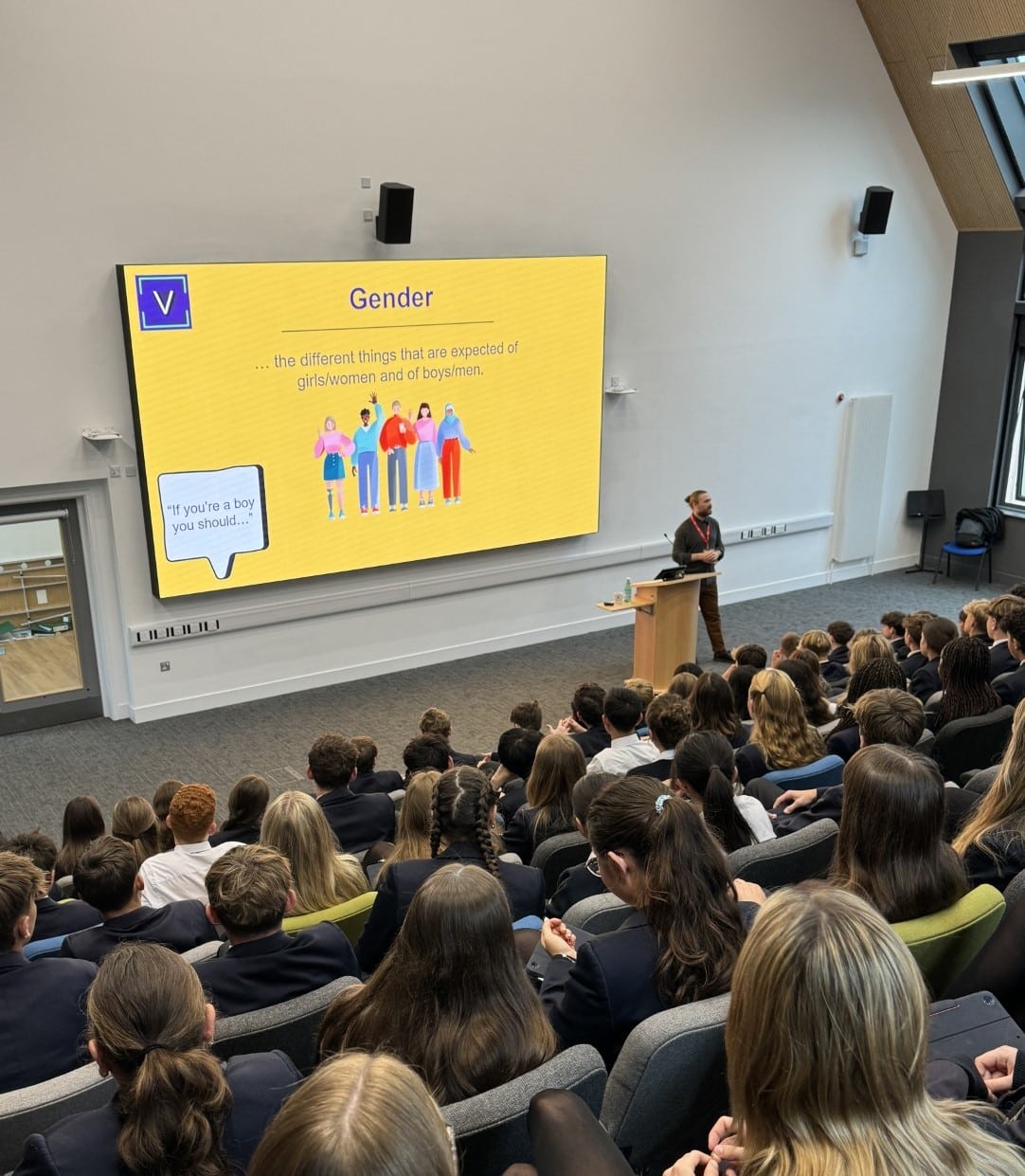Last year, in collaboration with Voicebox – an organisation established to tackle negative notions of masculinity and gender stereotypes – Epsom College designed an innovative programme called Positive Masculinity.
The aim is to evaluate school-wide cultures of masculinity, identify issues, and work with students to promote healthier ideals and open dialogue.
The first part of the programme took place last year. The second part kicked off this week, with a series of workshops and lectures for our Year 10 pupils.
Challenging Stereotypes
In a thought-provoking presentation, Epsom’s pupils were invited to question and rethink how traditional gender roles shape their lives. From an early age, children learn “how to be a boy or girl” by mimicking the behaviour of those around them. Boys, for example, may grow up noticing if the men in their lives don’t hug or express affection openly, and unconsciously adopt the same behaviour in their relationships. This rigid model of masculinity often comes with harmful ideas, such as the belief that “real men” should be tough, independent, and never ask for help.
Voicebox encouraged our pupils to challenge these outdated ideas and embrace a healthier, more open version of masculinity.
“My key takeaway was it’s ok for men to share their feelings with other people” – Year 10 pupil
The Pressures Girls Face
The discussion also highlighted the pressures young women face, particularly body image. Social media often bombards girls with unrealistic beauty standards, leading to harmful behaviours such as eating disorders. Even at a young age, many girls ask their parents for anti-ageing products they’ve seen online. But it’s not just girls who are affected – boys, too, are flooded with images of chiselled, muscly men, pushing them toward unhealthy gym obsessions and even steroid use.
LGBTQ+ and the Fluidity of Gender Expectations
The presentation also addressed how rigid gender roles negatively impact the LGBTQ+ community, who often face discrimination for not fitting into traditional ideas of gender and sexuality. Voicebox emphasised that views about what it means to be a man or a woman are not fixed and can change. By expanding our expectations, we can create a world where people are free to be themselves, without the pressure to conform to stereotypes.
“We shouldn’t judge people by their gender, everyone experiences the same feelings and emotions” – Year 10 pupil
Redefining Masculinity – Success Through Empathy and Vulnerability
A key focus of the session was healthy masculinity – that which embraces vulnerability, promotes equality, and encourages open communication about emotions. Traditional views of success, especially in business, often celebrate ruthlessness and competition. However, Voicebox offered a different perspective: true success in all walks of life lies in building positive relationships and fostering an empathetic, collaborative culture.
Our pupils were left to reflect on how they can achieve success and pursue their ambitions while embracing healthy masculinity. Voicebox argued that adopting a more compassionate and emotionally aware approach isn’t just good for personal wellbeing – it can also be the key to achieving long-term success.
“It’s about creating an environment where others can come to you if they need help” – Year 10 pupil
Epsom’s Positive Masculinity programme will continue with smaller workshops for Year 10 boys, and Year 12 students will join in later this term. By exploring these ideas, we hope to empower our pupils and encourage a more caring and inclusive community at Epsom College.





